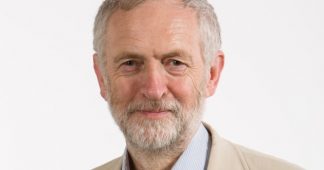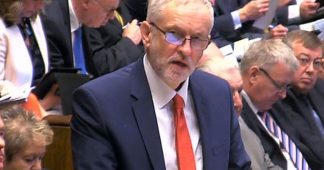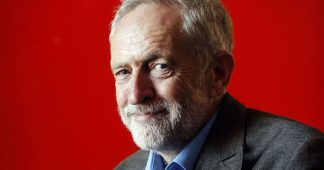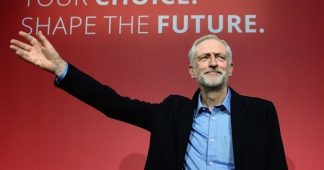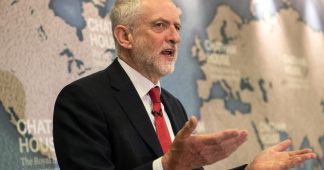JEREMY CORBYN’S foreign policy speech grasped a nettle politicians have been too scared to contemplate for far too long.
Perhaps the Labour leader’s greatest contribution has been the return of choice to British politics — an end to a system where the two big parties always agree.
Corbyn has worked that change already when it comes to domestic matters. Labour is no longer a party that will abstain when the Tories cap welfare, connive at the privatisation of the National Health Service or play havoc with our kids’ education through the academies and free schools programme.
It stands for the redistribution of wealth from those who have more than they could ever possibly need or use to fund services which we all rely on.
Yesterday we saw what a Corbyn government could mean for Britain’s place in the world as well. And it was refreshing.
Even more than on the home front, politicians of all parties have tended to coalesce on foreign policy.
Partly this is from a misunderstanding of what it means to be patriotic — “politics stops by the water’s edge,” to use a US phrase.
But the choices our politicians make for us have real consequences for everybody living in this country, and sometimes those consequences are lethal.
This couldn’t be clearer than after the unforgivable assault on children, women and men in Manchester at the beginning of this week — an attack, it now appears, carried out by a man who had travelled to Libya during the Western-backed uprising against the Gadaffi regime.
Nothing could be more pernicious and hypocritical than the howls of the right-wing press that Corbyn’s resistance to British wars abroad shows some kind of unwillingness to defend our people.
It is not Corbyn who “shares platforms with Middle Eastern fanatics,” as the Daily Mail accuses — it is Theresa May, who sucks up to the world’s biggest sponsor of Islamist terror, Saudi Arabia, the land where conversion from Islam is punished by death, where women are stoned to death and where people still have their heads chopped off for “sorcery.”
It was not Corbyn who backed the provision of logistical assistance and weapons to religious extremists seeking to overthrow the Libyan government, or later the Syrian — it was the Conservatives and the Liberal Democrats, with shameful collusion from too many on Labour’s benches.
Today’s speech will not mark an end to the slur that opposition to war is somehow weak. But let it mark an end to any hedging of the issue.
Corbyn was one of just 13 MPs to stand up to the war fever that gripped the Commons in 2011, when the David Cameron-Nick Clegg government decided to bomb the Libyan government out of existence.
Five hundred and fifty seven MPs lined up to vote for the war — despite the example of Iraq plain before their eyes, where the destruction of a repressive regime sparked years of bloodshed and resulted in a massively more dangerous and expanded terrorist threat.
Corbyn’s stance took courage, and the mockery and abuse faced by all who stand for peace and reason exposes a deep problem in our politics.
Those who care about the victims of terrorist atrocities will do all they can to prevent them happening — and that means a long, hard think about whether British foreign policy has helped the terrorists.
The evidence, from Iraq, Libya and Syria, is that it has. Finally Britain has a potential prime minister who is ready to try a new approach.
